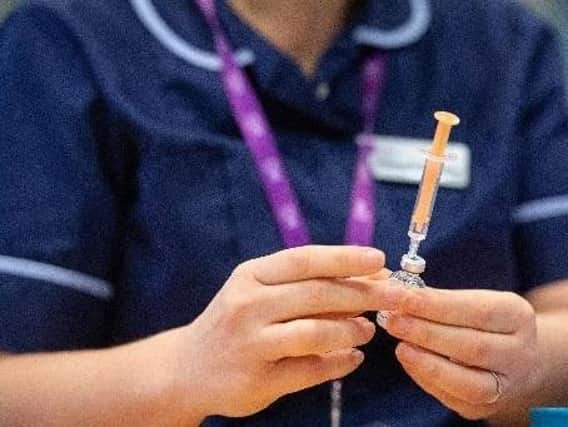Just one per cent "very or fairly unlikely" to take coronavirus vaccine in England, new figures show


Vaccine hesitancy stands at around four per cent nationwide, while hesitancy in Yorkshire is slightly lower at three per cent.
All adults over 18 are now eligible for vaccination, with many vaccination centres offering walk-in clinics that don’t require an appointment on set dates.
Advertisement
Hide AdAdvertisement
Hide AdAround one in seven older teenagers in Britain would be hesitant about getting a coronavirus vaccine, the figures show.
Some 14 per cent of 16-17-year-olds reported vaccine hesitancy when surveyed by the Office for National Statistics (ONS) between May and June.
The ONS also found that 9 per cent of 18-21-year-olds and 10 per cent of 22-25 year-olds reported hesitancy.
Vaccine hesitancy is defined as people who have refused a vaccine, say they would be unlikely to get a vaccine when offered, and those who responded "neither likely nor unlikely", "don't know" or "prefer not to say" when asked.
Advertisement
Hide AdAdvertisement
Hide AdThe survey was carried out between May 26 and June 20 and covered 16,180 participants aged 16 and over.
Across all people surveyed, the ONS found the vast majority (96 per cent) reported positive sentiment towards a Covid-19 vaccine, while 4 per cent reported vaccine hesitancy.
This is up from 78 per cent who reported positive sentiment at the start of the vaccine rollout, when surveyed between December 10 and 13.
Overall, 93 per cent of 16-29-year-olds reported positive vaccine sentiment in the latest survey - the highest proportion since the vaccination programme began.
Advertisement
Hide AdAdvertisement
Hide AdThere continue to be sharp differences in rates of hesitancy among different ethnic and religious groups, however.
Some 18 per cent of black or black British adults reported vaccine hesitancy, compared with 11% for adults of mixed background, 4 per cent for white adults and 3 per cent for Asian or Asian British adults.
Around one in seven adults (15 per cent) identifying as Muslim showed hesitancy, compared with 9% of people identifying as Hindu and 3 per cent of the Christian group.
Adults in the most deprived parts of England were more likely to report hesitancy than those living in the least deprived areas (8 per cent and 3 per cent respectively).
There was also a higher rate of hesitancy in London (7 per cent) and the south-west (6 per cent) than other regions of England.